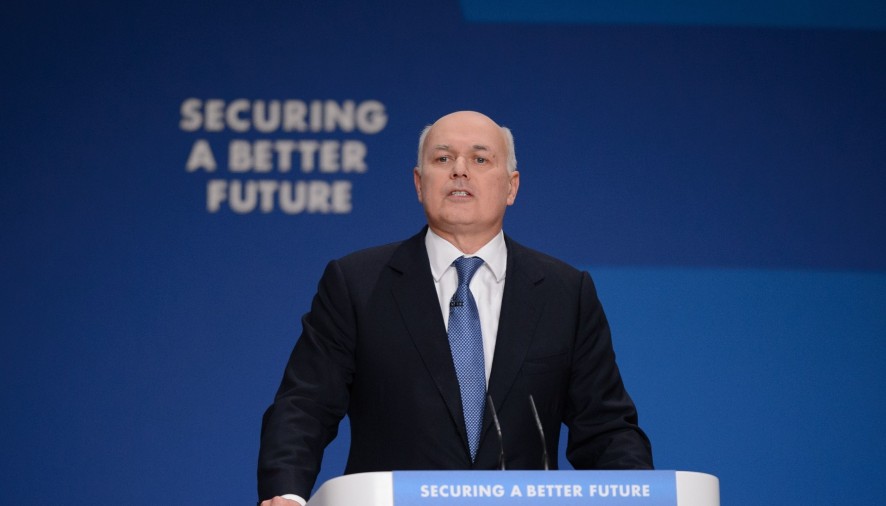Last Friday saw an interesting turn in government affairs, when Iain Duncan Smith, the Secretary of State for Work and Pensions, announced his resignation. The Minister claimed his resignation to be nothing more than a retaliation against the government’s proposed cuts to Personal Independence Payments (PIPs), a transfer payment formerly known as the Disability Living Allowance. He is opposed to the implementation of this measure, on the basis that it would be ‘a compromise too far’, and that it would have an ‘unfair’ impact on the disabled.
Often regarded as a ‘reformer’ within the Conservative party, IDS claims to have accepted the ‘necessity’ of the austerity measures put in place since 2010. But in what appears to have been an epiphany of conscience, he is now adamantly opposed to further cuts to benefits for disabled people. Interestingly, the Chancellor, George Osborne, claimed in his Budget announcement last week that the government would be spending an extra £1bn on disability over the course of the next financial year. Within the Budget itself (under sub clause 2.24), it is stated that the level of spending on PIPs is ‘expected to be over £3billion higher in real terms than in 2009-10.’ If these claims prove to be true, then it would seem IDS has few grounds to retaliate.
However, the truth of the matter is that the government also wants to change the formula used to calculate eligibility for PIP benefits. In effect, this would lead to cuts being made to net PIP spending, going on to affect an estimated 640,000 people. After re-framing the issue with this knowledge, it becomes clear that IDS does have some grounds to push back against what would, practically speaking, be cuts to PIPs for those who may still need them, even if there is an increase in net spending on disability.
Some have accused the resignation as little more than an attack on the Prime Minister, or related to the upcoming EU referendum. Duncan-Smith has denied these claims. Although it is clear that there is a ‘civil war’ taking place within the Conservative party (the cause of this being mostly attributed to the rift in opinion regarding Europe), IDS claims to be more concerned with how the government is, in his words, ‘dividing society’, and that introducing cuts such as these will favour the well-off over the least fortunate.
Duncan Smith was right to address the issues with cutting PIPs, assuming this is to be the true reasoning behind his resignation. Merely not ticking enough boxes on the list of criteria, does not mean people won’t struggle without financial support. Although net spending on disability is increasing, the implications of changing the PIP formula would be damaging to a number of people across the country. This does not, however, make IDS a martyr, however, as Suzanne Moore mockingly posited. It is necessary to take into account the many examples of where IDS made life more difficult and ‘unfair’ for disabled people in the UK, including the introduction of the infamous ‘Bedroom tax’. Perhaps IDS really has had a moment of conscience, but this doesn’t make him any less accountable for the negative impact of cuts to public spending, even if he was pressured into making them by the chancellor. For now, it is best to remain skeptical of his intentions.
George Jackson
Image courtesy of Getty Images

